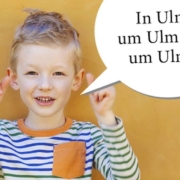6 German expressions on the weather that will make you smile (and understand more about the German people)
Dog weather or monkey heat?German will always make us chuckle with its original association of ideas.
For all those metereopathics out there, here are six of the most interesting German sayings (already cited by The Local) on the weather.

1. Das Hundewetter
Recalling the English expression “it’s raining cats and dogs”, Hundewetter is the perfect word to describe that terribly rainy day each of us experience at least once in Germany. Even the most ferocious of dogs won’t stand a chance. It is such a common expression that the German version of “Winnie the Pooh and the Blustery Day” was entitled “Winnie Puuh und das Hundewetter”.

2. Das Kaiserwetter
This expression takes us back to “the time of the Kaiser”, more specifically to Emperor Francesco Giuseppe of Austria’s birthday on the 18th August. Today the term is employed to describe that radiant, flooded with sunshine and carefree, without-a-cloud-in-the-sky day. Literally, an emperor’s day.

3. Die Affenhitze
“Mokey heat” reflects that kind of heat that will suffocate you and drive you to exasperation and it is usually employed in the sentence «Es herrscht eine Affenhitze». Apparently the origins of this word reside in the 19th century, when the monkey’s cage in Berlin’s Zoo was notoriously the most sultry place.

4. Etwas Sonne tanken
Literally, “to soak up some sun”. This expression conveys the need to regenerate, for instance by lying out in the sun and enjoying its warmth on our faces. The verb tanken, to refuel, associated to the sun, means to absorb and store up as much heat and light as possible (especially when stocking up for winter time in Germany).

5. Du siehst aus wie ein begossener Pudel!
Have you ever been called a wet poodle? Be sure that you will if you get caught in one of Germany’s notorious rainstorms. Although the etymological basis of poodle and puddle binds the two terms, along with the fact that poodles are notorious for being fans of these, the association of these words makes the saying “You look like a wet poodle” on of the most creative German expressions.

6. Ein Gesicht wie sieben Tage Regenwetter
If today is not your lucky day, you might as well have “a face like seven days of rainy weather”.
———————-
If you are starting to get intrigued by the German language, take a look at the German courses that Berlino Schule organizes.
Cover photo: © Bjoern Schwarz Indi Samarajiva, ,Selda Eigler, Vinoth Chandar CC BY SA 2.0






